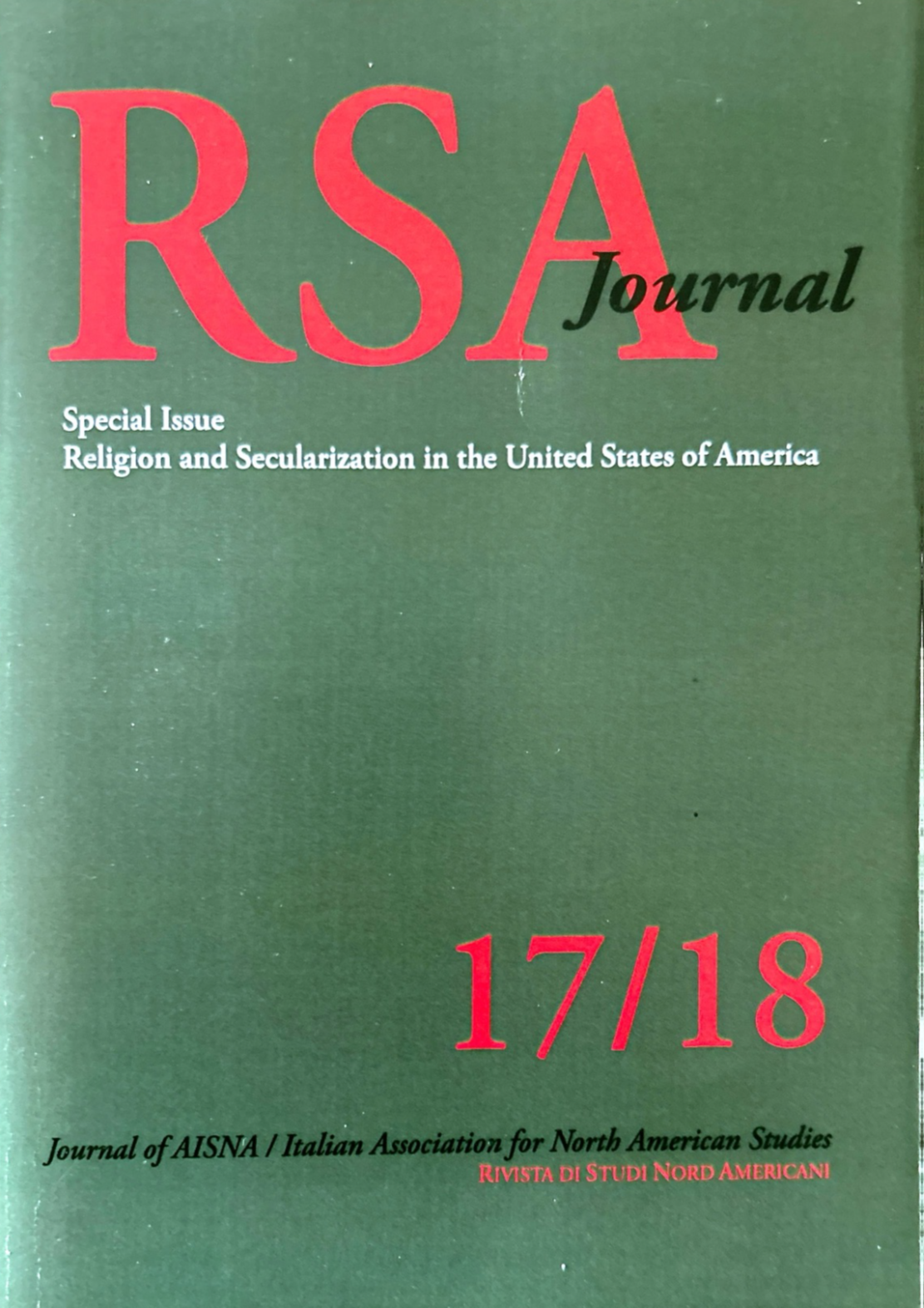Relics of the Secular
DOI:
https://doi.org/10.13135/1592-4467/8790Parole chiave:
religion, faith, science, secularizationAbstract
Declarations about the waning role of religion in the modern world have now been displaced by the recognition that faith still captivates the human imagination, in the Middle East, in the U.S., and elsewhere. A world fully modernized and rationalized is a world that nonetheless remains “enchanted.” As a way of asking how to think about the role of religion in America, I look at three court cases from 2006 (in Wisconsin, Georgia, and Mississippi) that stage the battle over the teaching of alternatives to Darwin within the public school’s biology classes. Arguments on behalf of “Creationism” disable the discipline of science to mark and manage its boundaries, compromising the very definition of an academic discipline. To pursue this question of boundaries within a different historical moment, I then turn to Charles Sheldon, author of In His Steps (1897) and William James, author of The Will to Believe (1897) and Varieties of Religious Experience (1902), both of whom defend religion passionately while conceptualizing it very differently. For James, religion remains private. For Sheldon, genuine religiosity requires the faithful to enact their faith at all times and in every dimension of life. It is the legacy of that insistence, I argue, that effectively dismantles any “wall” between the church and other institutions, which is why it falls to the court to adjudicate the separation of faith and science.
##submission.downloads##
Pubblicato
Fascicolo
Sezione
Licenza
Avviso sul Copyright
RSAJournal applica una licenza CC BY-NC-ND a tutti i suoi contributi. Questa licenza consente agli utenti di copiare e distribuire il materiale in qualsiasi supporto o formato solo in forma non adattata, per scopi non commerciali e a condizione che venga esplicitato/a l'autore/autrice dell'opera. CC BY-NC-ND include i seguenti elementi:
- BY: L'autore deve essere riconosciuto come tale.
- NC: Sono consentiti solo utilizzi non commerciali dell'opera.
- ND: Non sono consentite opere derivate o adattamenti dell'opera.
Gli autori che pubblicano con questa rivista accettano i seguenti termini:
- Gli autori conservano il copyright e tutti i diritti di pubblicazione per i loro contributi alla rivista.
- Gli autori concedono alla rivista il diritto di prima pubblicazione in base alla licenza internazionale Creative Commons Attribution-NonCommercial-NoDerivatives 4.0, che consente ad altri di condividere l'opera non modificata per scopi non commerciali a condizione che venga esplicitato/a l'autore/autrice dell'opera e la sede di pubblicazione iniziale (questa rivista).
- Gli autori sono in grado di stipulare accordi contrattuali separati e aggiuntivi per la distribuzione non esclusiva della versione pubblicata dalla rivista (ad esempio, per inserirla in una repository istituzionale o pubblicarla in un libro), con l'indicazione che il contributo è stato precedentemente pubblicato in RSAJournal.




